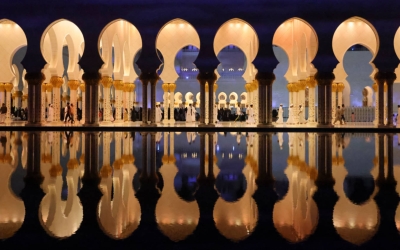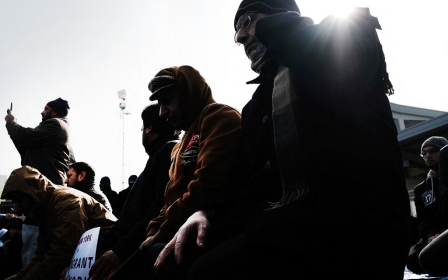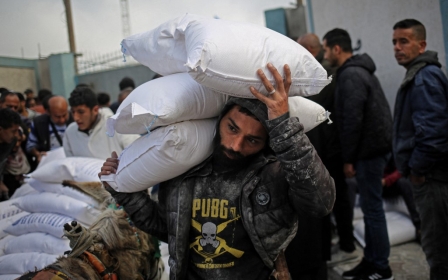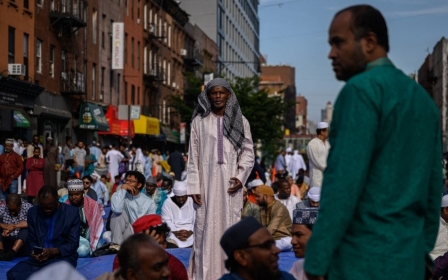Islamic philanthropy hits record $46m for refugees in 2023: Report
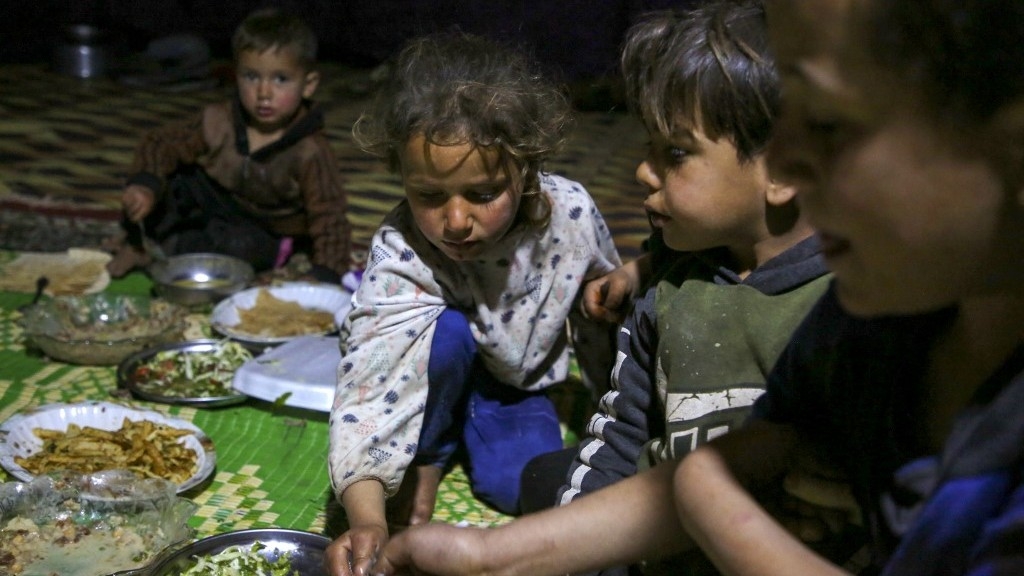
In 2023, Islamic philanthropy initiatives successfully gathered a record-breaking $46m to support about two million refugees and internally displaced persons (IDPs) across 23 countries.
According to a United Nations High Commissioner for Refugees (UNHCR) report released on Monday, among the countries receiving the most support through zakat and sadaqah contributions - which are obligatory and voluntary donations in Islam - are Lebanon, Syria, and Yemen.
In zakat, Yemen received $5,755,764 in 2023 and Lebanon received $5,640,256. For the highest sadaqah per country, Syria took the lead by receiving $8,612,170 in 2023.
In 2023, the Refugee Zakat Fund garnered over $21m in contributions, which were allocated to qualified recipients in accordance with the 100 percent zakat distribution policy. This approach is supported by 17 endorsements UNHCR has received.
Likewise, sadaqah donations surpassed $25m, benefiting over 826,000 people in 16 countries such as Afghanistan; Bangladesh; Greece; Ethiopia; India; Jordan; Kenya; Lebanon; Pakistan; and Uganda.
New MEE newsletter: Jerusalem Dispatch
Sign up to get the latest insights and analysis on Israel-Palestine, alongside Turkey Unpacked and other MEE newsletters
Since the Refugee Zakat Fund's inception in 2017, sadaqah contributions have supported over 2.7 million refugees and IDPs across 23 countries.
"This month is traditionally characterized by moments of joy, of gratitude, of family, of communal gatherings around the Ramadan table. Yet, escalating and brutal violence around the world has deprived countless families of moments like these," Filippo Grandi, the UNHCR commissioner said.
“I think of the millions of Sudanese refugees who have been forced to experience Ramadan away from home … of those displaced in Yemen, the enduring plight of Syrian, Afghan, Rohingya, and other refugees.”
The momentum behind Islamic philanthropy for refugees is increasing, with contributions to UNHCR nearly doubling in the last two years, the report notes.
Muslims are encouraged to donate during the holy month of Ramadan, which began on Sunday. During Ramadan, Muslims fast from dawn until dusk, abstaining from food, liquids and smoking. The Islamic holy month is also a time for prayer, reflection, atonement and charity.
Throughout the holy month, Muslims are expected to engage in charitable acts, one of which is the obligatory zakat al-fitr, which is given at the end of Ramadan but before the Eid prayer.
The significance of the donation for Muslims is to cleanse the donor from any shortcomings conducted during the month and provide food for the needy.
This donation is different from the zakat, which can be given at any time of the year. It is one of the five pillars of Islam and equates to 2.5 percent of a full year's savings.
In 2021, Muslim Americans gave an estimated $1.8bn in zakat, a study by the Muslim Philanthropy Initiative at Indiana University showed. The average Muslim in the US donated around $2,070 in zakat.
Middle East Eye delivers independent and unrivalled coverage and analysis of the Middle East, North Africa and beyond. To learn more about republishing this content and the associated fees, please fill out this form. More about MEE can be found here.


